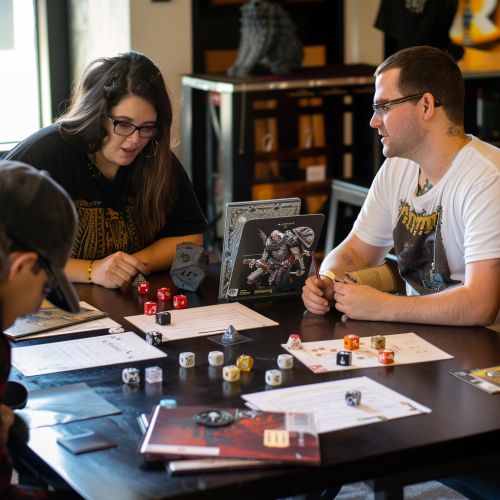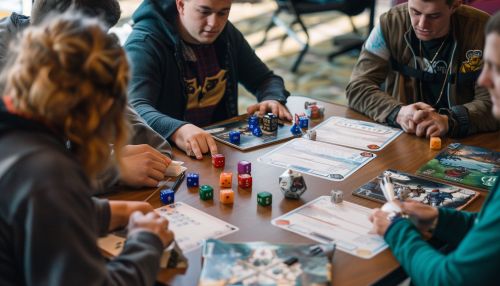Tabletop Role-Playing Game
Overview
Tabletop role-playing games (TTRPGs) are a form of interactive and narrative-driven game in which players assume the roles of characters and participate in an imagined world. Unlike traditional games, the course and direction of TTRPGs are determined by the decisions and actions of the players, often with the guidance of a game master (GM). The game master, who may also be referred to as the referee, dungeon master, or storyteller, is responsible for the overall narrative and rules of the game.


History
The history of tabletop role-playing games can be traced back to the early 1970s, with the creation of Dungeons & Dragons (D&D) by Gary Gygax and Dave Arneson. This game, which combined elements of traditional wargaming with a fantasy setting, is widely considered the first true tabletop role-playing game. Since then, the genre has expanded to include a wide variety of different games, settings, and play styles.
Mechanics
The mechanics of a tabletop role-playing game are the rules and procedures that guide the players and the game master in the course of play. These mechanics can include character creation, combat, magic, and other aspects of gameplay. The specific mechanics used can vary greatly from game to game, with some games placing a heavy emphasis on combat and tactical play, while others focus more on narrative and character development.
Character Creation
Character creation is a fundamental aspect of tabletop role-playing games. During this process, players create a character to play within the game's setting. This character serves as the player's avatar within the game world, and their actions and decisions are made through this character. The process of character creation can vary greatly from game to game, but generally involves determining the character's abilities, skills, background, and personality.
Gameplay
Gameplay in a tabletop role-playing game typically involves a group of players, known as a party, and a game master. The game master describes the game world and the situations the players' characters find themselves in, while the players describe their characters' actions in response. Gameplay can involve combat, exploration, problem-solving, and interaction with non-player characters (NPCs). The outcome of these actions is often determined by the rules of the game and the roll of dice.
Genres and Settings
Tabletop role-playing games can encompass a wide variety of genres and settings. These can range from traditional fantasy settings, such as those found in Dungeons & Dragons, to science fiction, horror, historical, and modern day settings. The genre and setting of a game can greatly influence its rules, gameplay, and character options.
Role-Playing and Improvisation
A key aspect of tabletop role-playing games is the role-playing and improvisation that takes place during gameplay. Players are encouraged to embody their characters and make decisions as their character would. This can involve speaking in character, describing actions in detail, and reacting to situations in a manner consistent with their character's personality and background.
Impact and Influence
Tabletop role-playing games have had a significant impact on the broader culture of gaming. They have influenced the design of video games, particularly role-playing video games, and have also been the basis for numerous novels, movies, and other forms of media.
